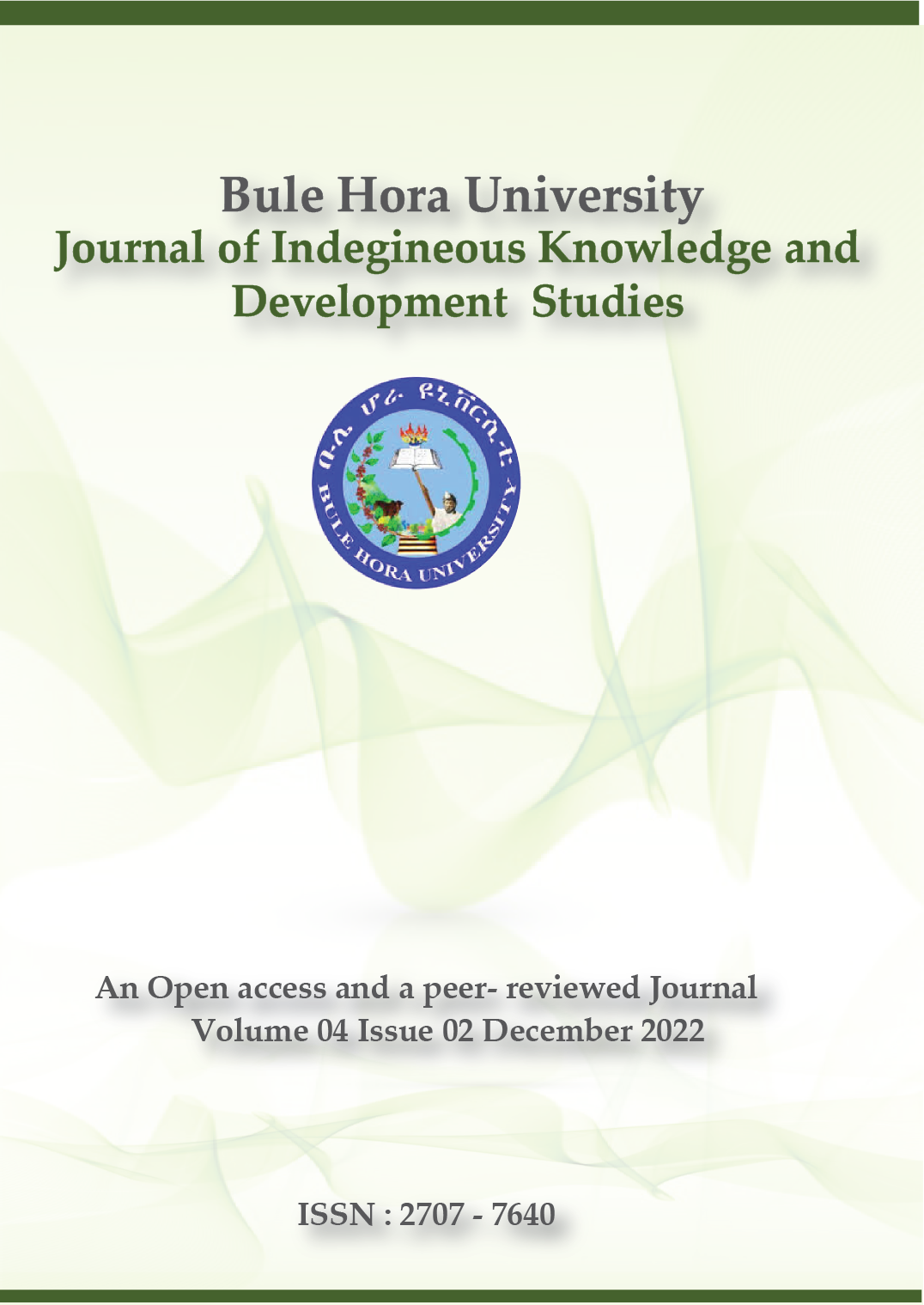Water Governance: Factors affecting good governance packages in Negele town water supply, southern Oromia
Keywords:
Water, Factors, Good governance, Water supply, NegeleAbstract
Good governance has become the center of administration systems and the concerns of scholars across the world. This research describes the level of good governance and factors affecting good governance packages in Negele town water supply, southern Oromia. The study used a mixed method approach—both qualitative and quantitative methods. A descriptive case study research design was used. A sample of 99 participants has been obtained from Negele town residents through a systematic random sampling technique. And interviews and focus group discussions were administered to 23 participants that were selected from residents, local elders, and water office leaders and workers purposively. The study used six pillars of UNESCAP (2008)—transparency, accountability, equality, participation, responsiveness, and efficiency and effectiveness—to describe the level of water governance in Negele town. Findings show that the Negele town status of urban water coverage is 52%. The level of transparency, participation, responsiveness, and efficiency of Negele town's water supply is medium. On the other hand, the level of equality, accountability, and effectiveness of the town’s water supply is low. Furthermore, the incompleteness of the Genale project, financial constraints, labor complaints, and political inclination of the office governance are the major factors that affect the good governance package in the Negele town water supply office. It concluded that the inefficiency of labor and ineffectiveness of the office to supply sufficient water challenge the town’s water supply good governance. It recommended that a sufficient budget need to be allocated for the Negele town water supply to distribute water to all residents equally, and politicians need to abstain to interfere in the water governance for political means.
Downloads
Published
Issue
Section
License
Copyright (c) 2022 Bule Hora University

This work is licensed under a Creative Commons Attribution-NonCommercial 4.0 International License.

